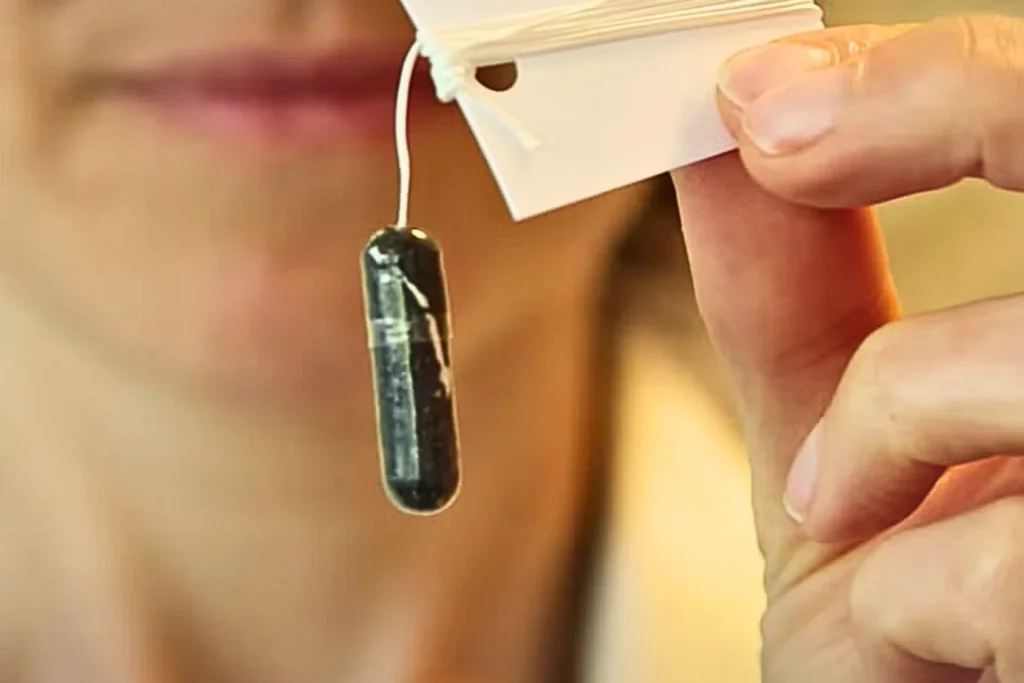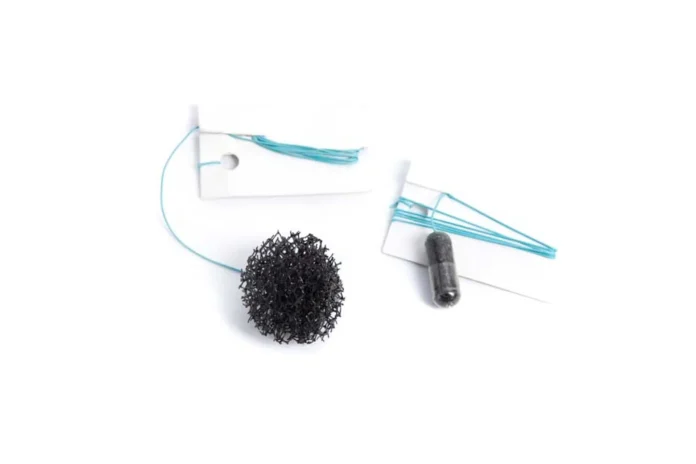Esophageal cancer poses health challenges that are often diagnosed at later stages when symptoms like difficulty swallowing become clear. However, an innovation, the Cytosponge, offers hope for early detection by targeting a precursor condition called Barrett’s esophagus. Developed by scientists funded by the Medical Research Council and Cancer Research UK, this ‘pill on a string’ test proves to be a simple, quick, and cost-effective alternative to the invasive endoscopy.
Esophageal Cancer
Esophageal Cancer is a disease in which malignant (cancer) cells form in the tissues of the esophagus. The esophagus is the hollow, muscular tube that moves food and liquid from the throat to the stomach. The exact cause of it is unknown, but smoking, alcohol use, Barrett esophagus and obesity can be primary identified reasons.
How the Pill and String Work?
The Cytosponge-TFF3 test involves a small coated pill on a string, quickly swallowed by individuals. As the pill dissolves in the stomach, the attached sponge expands, collecting cells from the esophagus on its way back up. The collected samples undergo analysis in a lab using the TFF3 antibody test, allowing pathologists to identify signs of Esophageal Cancer.
Origins and Evolution
The concept of the Cytosponge was introduced in 2000, evolving from discussions about the limitations of endoscopy. Professor Rebecca Fitzgerald of the University of Cambridge led the project, gradually developing the prototype for cytosponge cancer—extensive testing involving thousands of participants’ results, ensuring its feasibility and acceptance in GP surgeries.

Clinical Trial for Esophageal Cancer
The latest trial, published in The Lancet, showed the Cytosponge-TFF3 test’s superiority over current GP care, identifying ten times more cases of Barrett’s esophagus. Comparing it to standard clinical care for heartburn symptoms, the trial showcased its potential to change the detection of early-stage cancers, allowing for timely intervention and treatments.
Future Prospects and Implementations
The success of this Esophageal Cancer detection test trial has paved the way for Cytosponge’s implementation in GP surgeries and secondary care across England. Ongoing data analysis from different usage scenarios, like the ‘COVID Cytosponge clinic,’ continues to inform its role in identifying patients who urgently require endoscopy.
Scotland has also recognized the Cytosponge as a ‘simpler alternative to endoscopy,’ implementing it in a £500,000 program. The National Institute for Health and Care Excellence has also developed a Medtech innovation briefing, supporting its potential integration into NHS services.
The Cytosponge emerges as a beacon of hope in the early detection of Esophageal cancer, offering a non-invasive, efficient, and accessible diagnostic solution. Its success in clinical trials and adaptability in response to unexpected challenges emphasizes its potential to revolutionize cancer diagnostics, ultimately saving millions of lives and reducing healthcare costs.



